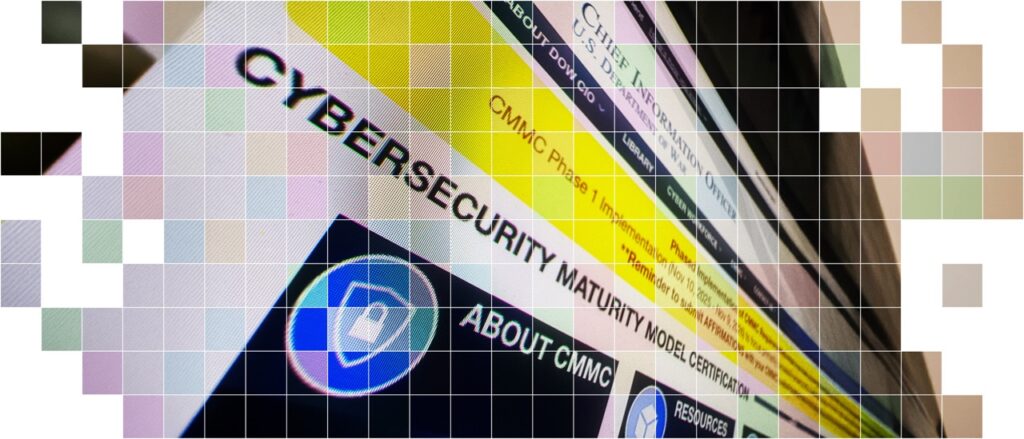Navigating Diplomacy in the Indo-Pacific: Japan’s Security Strategy
| By Caroline Gross and Eliana Pisons |
Japan and Indo-Pacific Security Concerns: An Interview with Captain Yusuke Saito
The world is currently facing myriad confrontations with global polities trending towards autocracy, climate change exacerbating cross-border disputes, and emerging AI technology posing an unprecedented threat to cybersecurity and national security. As a result, foreign policy leaders are confronting a rapidly changing security landscape that requires constant analysis and innovation to adapt to these challenges. On June 10th, my colleague, Eliana, and I had the privilege of interviewing Captain Yusuke Saito, Senior Legal Advisor for the Japan Maritime Staff Office of the Japan Maritime Self Defense Force, to discuss these challenges and how Japan is charting the path to peace.
With his expertise in defense operations, international maritime law, and foreign service, Captain Saito provided a nuanced perspective into the challenges Japan is currently facing. During this conversation, he not only addressed the importance of the US-Japan alliance but also reiterated the significance of multilateral coordination, the rule of law, and Japan’s policy of peaceful diplomacy to deter military force and ensure regional prosperity. Captain Saito’s insights highlighted frameworks like the Free and Open Indo-Pacific (‘FOIP’) to strengthen cooperation with allies on issues of transnational security. He further emphasized upholding international maritime law, including the UNCLOS, amidst environmental concerns and territorial disputes in the South China Sea.
This interview spotlights Japan’s diplomatic strategy as regional adversaries like China and North Korea threaten to shift the balance of power. While the Captain reiterates Japan’s position as a regional power at the forefront of international relations through its promotion of multilateralism, the rule of law, and its adherence to collective self-defense, he is unwavering in his assurance that the US-Japan alliance and Japan’s identity as a pacifist country remain unchanged. Given the precarious dynamics at play in the Indo-Pacific, Captain Saito offers unique and timely insights about Japan’s strategic path forward.
This is our interview.

Overarching National and Regional Security Threats:
Who or what are the biggest threats to Japan’s national and regional security at the moment?
Captain Saito: States that do not share universal values are expanding their influence. Unilateral changes to the status quo by force and such attempts represent a serious challenge to the existing international order. The international community is facing its greatest challenge since World War II and entering a new era of crisis. The global balance of power is shifting dramatically and competition among states continues, especially between the United States and China, and is set to intensify even further in future. In addition, response to natural disasters is also an important mission for the Self-Defense Force.
How is AI and other emerging technology changing the security environment in the Indo-Pacific?
Captain Saito: The creation of science, technology, and innovation is the source of our country’s economic and social development, and the appropriate use of technological capabilities is essential not only for security, but also for addressing global issues such as climate change. We recognize that each country is focusing on research and development of advanced technologies, such as Artificial Intelligence (AI), quantum technology, and next-generation information and communication technology, which could be so-called game changers that will revolutionize future warfare. Although the R&D expenditures of the Ministry of Defense in Japan are low compared to those of the United States and other countries, they have been increasing significantly in recent years due to their importance. The Ministry of Defense formulated the Defense Technology Guidelines in June 2023. By promulgating the guidelines, the MOD aims to increase the predictability of companies and other organizations, foster a common understanding of the need to strengthen defense technology, and establish a foundation for strong technological collaboration. The guideline, for example, identifies key technology areas such as unmanned, autonomous, sensing for faster and more accurate information, and the ability to effectively defend cyberspace. So as I mentioned, technology is very important in changing our security environment.
The Self-Defense Force
Since the establishment of Japan’s post-war constitution at the end of World War Two, Japan has maintained a policy of peaceful diplomacy. As stipulated in Article 9 of the constitution, Japan renounces war, war potential, and denies the right of belligerency of the State. However, since Japan is an independent nation, these provisions do not preclude Japan from its inherent right of self-defense as a sovereign state. Thus, the Japanese government interprets this as a constitutional right to possess the minimum armed forces needed to exercise that right. Therefore, Japan, under the Constitution, maintains the Self-Defense Force (SDF) as an armed organization, holding its exclusively defense-oriented policy as its basic strategy of defense and maintains security relations with the US under the 1960 Japan-US Security Treaty.
Article 9 has been a cornerstone of Japan’s pacifist identity since the foundation of Japan’s postwar constitution. However, the article has long been a source of controversy. On numerous occasions, LDP and Komeito party members have pushed for its repeal and the creation of a formal military, though these attempts have been unsuccessful. However, Japan’s military capabilities were expanded to an extent in 2015 through the legalization of collective self-defense; an international principle which allows countries to come to their allies’ aid if they are attacked.
Given the legalization of ‘collective self-defense,’ to what extent is pacifism still central to Japan’s identity today? Where do we draw the line between Japan’s pacifist identity with its new military capabilities under the principle of collective self-defense?
Captain Saito: I would say, while it depends on one’s definition of the word pacifism, peace and security are essential for peace and prosperity at least. In this sense, pacifism has always been a central tenet of Japan. And I will add that peace and prosperity cannot be secured simply by wishing for them. They require the proactive efforts of our nation itself, and in order to protect our nation, the first priority should be proactive diplomacy. While emphasizing universal values and principles such as freedom, democracy, human rights, and the rule of law, it is essential to promote coordination and multilateral cooperation with like-minded countries with the Japan-U.S. alliance as the cornerstone. At the same time, diplomacy requires a supporting defense capability. Furthermore, Japan cannot defend itself alone. It is no longer possible for any country to defend itself on its own. Therefore, cooperation with allies and like-minded countries is essential. The SDF’s defense force development is based on this concept.
What has been the reaction in Japan and abroad (i.e. China, South Korea) to Japan’s constitutional reinterpretation of Article 9 to allow for the limited application of collective self-defense?
Captain Saito: This is not a so-called constitutional reinterpretation that exceeds the limits of rational interpretation. It is the result of rational application within the framework of the basic logic of the existing government view. Moreover, unlike the so-called right of collective self-defense, which is aimed at the defense of other countries, this security legislation allows the minimum necessary measure of self-defense to fulfill the nation’s existence and protect its people. When this security legislation was enacted, it was explained to other countries and was well understood.
What are the biggest struggles for cooperation between the SDF and the US military right now? What are the current challenges to maintaining balance between national and US strategic interests in the Indo-Pacific?
Captain Saito: The SDF and the U.S. military have always worked closely together. If you are referring to current goals rather than struggles, we are discussing, for example, the relationship between the Self-Defense Force’s Joint Operations Command (‘JJOC’) and its counterpart in the United States military, especially because JJOC launched in March of this year. We also try to develop Japan-US cooperation to effectively operate Japanese counterattack capabilities under close coordination. So, I think those are the challenges we are cooperating with right now.
As far as I recognize, I would say the U.S. commitment to the Indo-Pacific region is unwavering. For example, the meeting between Defense Minister Nakatani and U.S. Secretary of Defense Hegseth on March 30th of this year underscored the unwavering U.S. commitment to the defense of Japan, using all capabilities, including nuclear weapons, by the United States. So while there is some discussion about the commitment, as far as I know, that commitment is very strong and has not changed at all.

Japan and the Republic of Korea
Despite being democratic allies of the United States, Japan and South Korea have historically had strained relations over historical and geographical problems such as Dokdo/Takeshima. However, increasing threats from North Korea, including missile launches, are pushing both countries to strengthen trilateral security cooperation. We questioned Captain Saito if these external forces could finally strengthen long-term Japan-ROK cooperation.
Over the past few years, North Korea has launched missiles over Japan and South Korea. Do you believe the growing threat of North Korea could push Japan and South Korea toward closer security cooperation despite historical tensions?
Captain Saito: As for North Korea, it continues to be one of the biggest challenges to Japan. South Korea is an important neighbor with which we should cooperate as partners to address various issues in the international community. In the defense field, as the security environment surrounding Japan and South Korea becomes increasingly severe and complex, since as you mentioned the missile launch by North Korea and nuclear issues, [cooperation between] Japan and South Korea is becoming more and more important. Specifically, in April 2023, the Ministry of Defense and the Ministry of Foreign Affairs held the first Japan-ROK Security Dialogue for the first time in about five years, based on the Japan-ROK Summit Meeting. The two countries deepened their understanding of the strategic environment and the security and defense policies of the two countries. [Together, they] exchanged views on the response to North Korea and on strengthening Japan-ROK and Japan-US-ROK cooperation, including cooperation in the Indo-Pacific region, and agreed to communicate closely to strengthen security and defense cooperation between the two countries. That posture of the Japan-ROK cooperation continues, which is very important for both of us.
International Law and Partnerships
With territorial disputes and climate change becoming more pronounced among Southeast Asian states, current international conventions like the United Nations Convention on the Law of the Sea (‘UNCLOS’) provide the most relevant legal basis for how states should conduct their affairs in accordance with international law. In 1982, this convention was adopted by the United Nations as a legally binding agreement to ensure peaceful use of the seas, ocean resources, and protection of the marine environment. Currently, 170 countries are signatories to the convention, and all coastal states in Southeast Asia have either ratified or signed the treaty. However, increasing sea level rise due to climate change threatens to heighten territorial disputes among coastal states, and China’s violation of the UNCLOS in the South China Sea has further ignited these concerns.
As a key player in the Indo-Pacific, Japan focuses on ensuring regional maritime security through its support of the UNCLOS and on fostering international cooperation through its Free and Open Indo-Pacific (‘FOIP’) Partnership. In 2017, Japan created the FOIP as part of its strategic vision to protect the rule of law, promote free trade and freedom of navigation, as well as address shared challenges in the Indo-Pacific through international collaboration. This region covers the vast swath of land and ocean from the eastern coast of Africa to the Western border of the Americas and encompasses roughly 60% of the world’s population, three of the five strongest global economies (China, Japan and India), and represents the heart of international maritime trade. Thus, Japan recognizes that maintaining stability and the rule of law in this region is essential to securing its own national prosperity.
Japan hopes to ensure regional peace and prosperity through partnerships like the “Free and Open Indo-Pacific.” What obstacles currently pose a threat to Japan and its partners achieving this vision?
Captain Saito: Yes, the main concept of the Free and Open Indo-Pacific, what we call FOIP, is to foster the region into a place that values freedom, the rule of law, freedom from force or coercion, and to make it prosperous. Japan believes that vulnerable countries are in greatest need of the rule of law, and the principles of the UN Charter should be upheld. And Japan highly appreciates the position of the Government of the Philippines, which has consistently complied with [the UNCLOS] and shown its commitment to the peaceful settlement of disputes in the South China Sea. Japan renews its objection to maritime claims in the South China Sea that are inconsistent with the UNCLOS, for example. On this occasion, Japan also reiterates serious concern over repeated actions which obstruct the freedom of navigation and increase regional tensions including recent dangerous actions that resulted in damage to Filipino vessels and injuries to Filipinos onboard. So the FOIP is not only a concept that is very important for our nation, but it is also something that we can share as a regional cooperation [initiative].

Under the FOIP, Japan emphasizes adherence to international law. However, satellite imagery indicates that China has been building artificial islands in the South China Sea for the past 10 years and installing military bases on the islands, violating the UNCLOS. How does Japan hope to uphold international law and treaties like the UNCLOS?
Captain Saito: Thank you so much for your question. I would say that we try to be consistent with the Free and Open Indo-Pacific concept, again which emphasizes the importance of the rule of law, and that will help with vulnerable countries in terms of their force or major capabilities. It is very important to go back to diplomacy, and at the same time, not coerce someone by force. I think that is something we can share with, not only countries in the South China Sea or Southeast Asia, but also with countries all over the world, including Europe and other parts of the world.
What is the importance of UNCLOS in maintaining regional stability in the South China Sea?
Captain Saito: Especially when it comes to UNCLOS, as you understand, UNCLOS is called the [UN] Convention of the Law of the Sea, so it is quite important for all of us to behave under the rule of law, and there are many systems under UNCLOS to talk and settle down some disputes. At first, we have to go back to the concept of UNCLOS, and that may help nations to solve some issues without resorting to power or force that is illegal according to the UN Charter.
Other than the US, has Japan been working with other territories in this area to ensure the rule of law and ensure respect of UNCLOS when we see these violations?
Captain Saito: Sure, so that’s a really good question because I would say it is quite difficult to define the area around us. We cooperate with many countries including South Korea, Mongolia, the Philippines, Indonesia and Australia. I think those are the nations around us. I can include Vietnam as well. At the same time, there are many European nations that have recently visited Japan by sending some warships or aircrafts to show their interest in this region, and we cooperate with them as well. So [we cooperate with] not only the nations that are close in terms of distance; we cooperate with other nations if they are interested in this area.
Given that sea levels are rising and that’s expected to continue, do you foresee any other issues to arise with adherence to the UNCLOS? Perhaps it may change EEZs or fixed baselines. Do you see the potential for more maritime or territorial disputes due to climate change?
Captain Saito: Yes, sure. One of the most pressing issues in terms of climate change at sea is the Arctic passage during the summertime. It is always one of the important issues among rated nations, not only the nations around the Arctic, but also the nations who depend on sea rain. We closely watch that issue, and, of course, we try to, or international society tries to [monitor state compliance with international law on this conflict]. I’ll note that that issue is under the UNCLOS.
With climate change and Japan’s international role in institution-building, do you see Japan as a frontrunner in these negotiations or conversations in terms of climate change?
Captain Saito: Yes, I think so. When we launched the concept of FOIP that includes not only the rule of law, it tried to conceptualize the importance of the UNCLOS at the same time, and our explanation of FOIP is not binded by the local nations of the Indo-Pacific, but also to all nations which may be related to that passage itself. So from the concept of the FOIP, not only Asian nations, but also European nations or African nations are involved, and from that sense I would say Japan became the frontrunner by considering the importance of the environment and security.

US Military Bases
Japan’s defense is dependent on its alliance with the United States, as its Self-Defense Force is constitutionally restricted to defense-only missions. Recently, the US military relocated troops from Okinawa to Guam and Tinian, raising concerns about future regional deterrence, such as whether these developments are meant to reduce the United States’ regional presence or are part of a new unified strategy with Japan. Additionally, given the changes to Japan’s domestic policy allowing for the provision of collective self-defense, it is necessary to consider whether the shift in US troop positions is part of a broader strategy to expand Japan’s Self Defense Force capabilities in the region.
U.S. troops have been moving from stations in Okinawa to stations in Guam and Tinian. What does this mean for regional security? Could this encourage Japan to strengthen the SDF forces? Does it change how China views Japan’s role in regional security?
Captain Saito: This movement does not change the role of the US and Japan. That is because, as indicated in the US Defense Strategic Guidance released in January 2012, the purpose of the movement of the arrangement of the US force is to take measures to quickly and steadily reduce the visible burden of Okinawa and to coordinate the U.S. military realignment plan with the strategy emphasizing the Asia-Pacific region. So the alignment itself does not necessarily mean that the presence of the United States military itself will be weakened, but this alignment makes the US commitment more stronger, and the SDF believes that this initiative, together with the enhanced SDF capabilities and posture, will greatly beef up the deterrence and response capabilities of the Japan-U.S. Alliance.
Interviewers’ Final Remarks
At a time when the Indo-Pacific region faces escalating risks and transformative technological shifts, Captain Saito explored how Japan is balancing peaceful diplomacy with deterrence in pursuit of its security goals. Through this process, the Captain underscored the rule of law in maintaining maritime peace, encouraged multilateral coordination with allies on issues of transnational security and economic prosperity, and reinforced Japan’s defense posture through its adherence to Article 9 of the state constitution.
As regional threats intensify, the Captain’s vision reflects Japan’s status as a stabilizing force. Through the policies of proactive diplomacy, collective action, and principled organization, Japan’s role in the region is not limited to protecting its own national interests. Rather, Japan’s active engagement in shaping the security climate through its promotion of legal standards like the UNCLOS and multilateral initiatives like the FOIP demonstrate Japan’s international influence as a force for peace across the Indo-Pacific.
This transcript has been lightly edited for clarity.

The images in this article were created using an AI image generator. All illustrations are ©Intelliwings.



